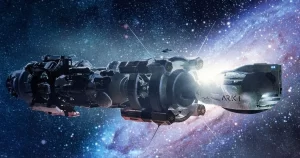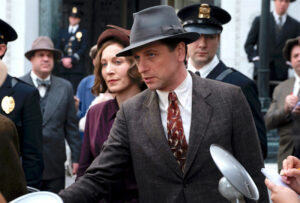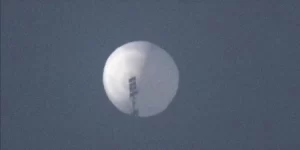I finally got around to watching the second episode of The Ark and I’m sorry to say many of the problems from the first episode remain.
There was one character I actually liked so at least that’s an improvement. If you want to read my review of the first episode, please do so because I’m not going to repeat my thoughts even though many of the issues are the same.
Bad Science in The Ark
The thing that annoyed me most about this episode revolved around absolutely wretched science. I think when you’re writing a science fiction television series it’s fairly important to have some passing knowledge of what you speak.
Don’t get me wrong. I’m not asking for technical scientific explanations about every mechanism of the ship. I don’t need to know how cryogenics works. I’m more than willing to suspend my disbelief when the situation warrants it.
In this case the most egregious science came during the water crisis. More about that later.
Basically, they are running out of water and the hydraulic engineer needs to fix the water reclaimers. Again, I don’t need to know too much about the process of doing so although a little technical discussion rather than just yelling, “fix it”, might be nice.
The engineer decides, without telling any other officer, to take all the coolant system water and reclaim it. The engines then stop working, no duh. Oh no, says the captain, we’ll just stop without those engines working, we’re dead in the water.
First off, engines don’t just stop working. Perhaps an alarm about rising heat and then an automated shutdown or, if not, the engines simply overheating and seizing.
The opening scene of the episode sees an explosion sending a crewmember drifting off into space. A second person launched himself and grabs the drifting person, then both of them change direction, for no apparent reason, and fall back to the surface of the ship. I use the word fall loosely.
The problem here is that in space, once you have momentum, there’s no friction to slow you down. Shutting off the engines is actually a problem but not because the ship stops but because in the fourth year of a five-year journey you’ve turned the ship around and are firing the engines to slow down. Thus, avoiding zooming past your target at an unsustainable speed.
This is not complex science. It’s not difficult to get right. Getting it right fixes these scenes and is done easily. Have the crewman who saves the other simply fire his pack jets a second time. Explain the momentum problem of the ship with a few lines of dialog.
Crisis from Nowhere
Again, crisis just appears. The first crisis is the opening scene during a space walk when debris from the broken part of The Ark threatens the crew examining the damage. Why not have some discussion about doing a space walk first? Let us get to know the crew member who is going to die before you kill him?
The second crisis is the water pipe burst. Again, it’s not hard to set all this up. When they are building the irrigation system maybe spend a few lines explaining why you don’t have shut-off valves on all the pipes. Take a few seconds showing the murderer throwing the weapon into the piping system. This is foreshadowing and lets the audience in on what is about to happen. It builds tension.
I won’t even talk about how the genius farmer boy doesn’t know about a shut-off valve. Well, I guess I just did.
Talking in front of the Crew
The annoyance I felt every time the officers aired all their grievance with one another in front of the entire crew is indescribable. They stand there discussing how to deal with the rioters in front of the tied-up rioters. It’s absurdly stupid.
Stereotypes
The Stereotype problem remains. The psychiatrist girl is painful to watch. Attractive women should mount a boycott.
Infighting
The entire crew is in a dangerous situation but rather than try and help out, they snipe at each other over ridiculous things. I can understand overworked and stressed out crew members snapping but there is no build up, it’s just someone arguing something really stupid for no reason. Then the good crew member manages to convince them to behave a second later. There’s no drama in it, just two people pretending to have a dramatic conversation.
I might add, everyone looks pretty darned refreshed for not having slept or showered in two days. Great hair!
Security
Hooray! Something I liked. The security guy investigating the murder. I actually liked his firm attitude and professionalism. In addition, his sidekick might be that dark-haired, crazy-in-her-eyes type that I find irresistible. Give her some lines.
Conclusion
Please get better, The Ark. Please, I want to like you. I love science fiction shows. The wounds here are all self-inflicted. The concept of the show is intriguing.
Tom Liberman


